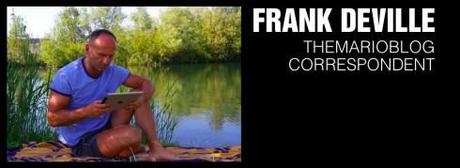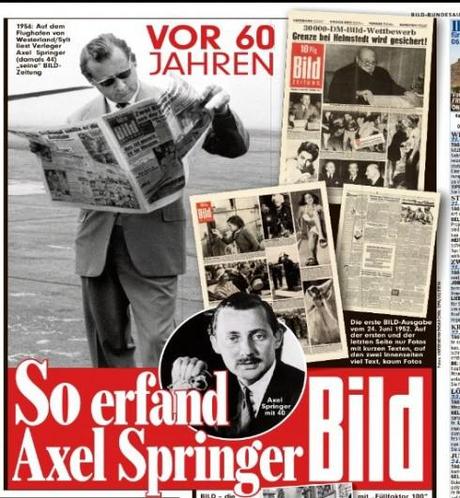TAKEAWAY: We’ve said it before, and we repeat it today (with some positive and strong backing): print affords us to disconnect, and it is not likely to disappear anytime soon.
AND: Bild of Germany turns 60 today
Print is eternal
It happened again today here in Charlotte, as we conducted a kickoff workshop for our project with American Business Journals, publishers of 40 weekly financial newspapers nationwide.
As usually happens sometime before 11 a.m., the question was asked: do you see a future for print?
As I usually answer before 11:10 a.m. each day, my answer was an emphatic YES.
But, and this is a big BUT, print will have to adapt, to mold itself to the new media landscape, to realize that it has lost the time advantage in terms of breaking news, and play the new role of a more analytical, behind the news type of publication.
While at it, the printed newspaper’s marketing department should promote the advantage of ink on paper, most important of which is that it allows for disconnectedness. When you sit by the fireplace or under the beach umbrella with your printed newspaper, there is not likely to be any beeps or alerts to lure you away from your story, not to mention that you will not be tempted to swipe your screen towards Facebook or Twitter, or to check your email.
However, here is one
%0A">
%0A" title="recent quote">recent quote that I like very much, and it comes from Eric Bates, of Rolling Stone magazine. In a recent interview, Bates has said:
“… To me, if you think about it, magazines in a way were a pre-Internet precursor of the Internet. Magazines do a lot of the things that the Internet does for us. You go to a magazine, much as you go to a Web site, often looking for a community of likeminded people who share your interests.”
He continued:
“I sometimes say that, you know, if you think about it, if we didn’t have print magazines now, if all we had was the Internet, and I somehow incredibly invented the print magazine, and said, ‘Hey, look at this!’—would that product survive? And I think the answer is yes, because it’s portable, it’s high-resolution graphics, beautiful like an iPhone if it’s done right. You can read it in the bathtub or at the beach or during takeoff. You can share it with your friends. It’s got a lot of attributes that you want when you go looking for information and stories. And that’s been borne out in our experience at Rolling Stone over the past 10 years.”
Beautifully said!
And, of related interest….
Adding fire to the value of ink on paper, and that great and inspiring thought that print is eternal, is this
%0A">
%0A">
%0A" title=" piece"> piece in The New York Times, in which two phrases caught my attention:
A reference to 21st Century cacophony-—”noises” that surround us and distract us. Indeed, it is the distractions around us that keeps us from fully engaging in a traditional solitary activity. According to the piece, some of the millions of consumers who have bought tablets and sampled e-books on apps from Amazon, Apple and Barnes & Noble have come away with a conclusion: It’s harder then ever to sit down and focus on reading.
A reference to the tablet as a “temptress” that is constantly saying, ‘You could be on YouTube now.’ Or sending alerts that pop up, saying you just got an e-mail.
So, we conclude that print offers us disconnect, tempts us only with the enjoyment of reading, and allows us for total concentration.
Eternal values, I would add.
Bild of Germany celebrates 60 years


Speaking of celebrations of print, today Bild, that most colorful and irreverent of German dailies (or dailies anywhere, for that matter) turns 60 years, and it is a big birthday celebrated through the pages of today’s editions. Frank Deville, our Europe correspondent, sends us this image frpm today’s Bild
At 60, Bild is still a youthful, energetic newspaper, with a vibrant tablet edition that is unequaled in the number of pop ups it offers and the creativity of them.
Happy birthday, Bild Zeitung!
Alles Gute zum Geburtstag .

